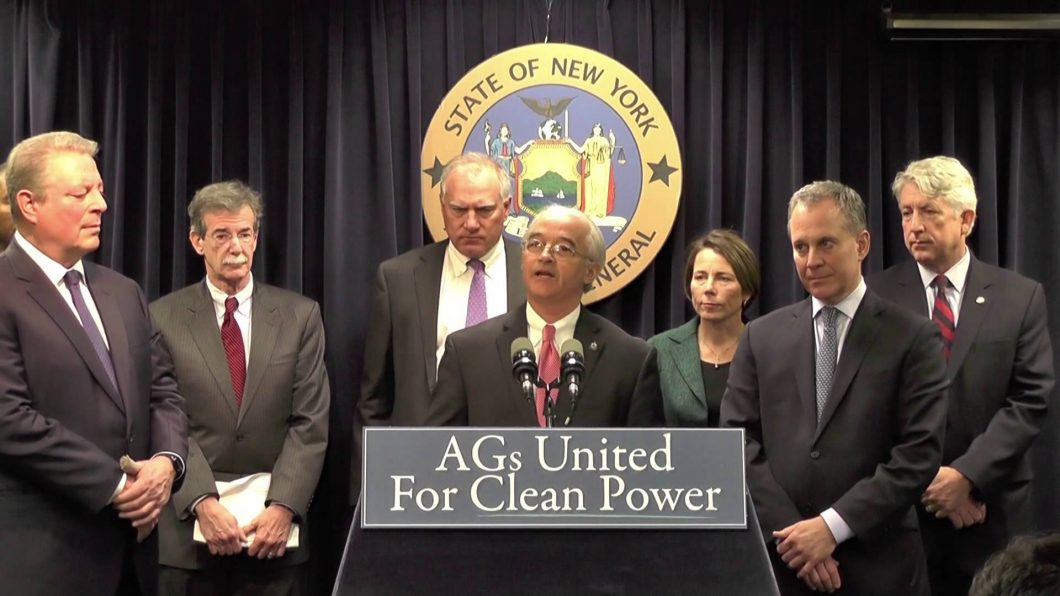Investigating the Investigators
The last several weeks have seen extraordinary developments in the climate-change investigation of ExxonMobil. What once was an investigation of ExxonMobil by states attorneys general has become an inquiry into the misconduct of the attorneys general.
First came a mid-September order from Judge Ed Kinkeade, of the U.S. District Court for Northern Texas. Exxon had received a subpoena requiring massive disclosure—a subpoena (or “Civil Investigative Demand”) signed not by a judge but merely by the Attorney General of Massachusetts, Maura Healey—and the company responded by suing to enjoin its enforcement. Ordinarily (under the Younger abstention doctrine) a federal court would hesitate to intervene in a state proceeding. But there is a bad-faith exception to Younger abstention, and Judge Kinkeade held that he needed to conduct “jurisdictional discovery” to determine whether Healey had acted in bad faith—the goal being to determine whether the court could enjoin her from proceeding with her investigation.
Although this decision about “jurisdictional discovery” sounds preliminary and technical, it is profoundly important. It opens the door to a judicial investigation of the investigator that would turn the tables on the attorneys general.
The factual details will be interesting. Judge Kinkeade expressed concern that Healey issued the subpoena after she met with a member of a law firm with a history of suing Exxon; after she tried to cover up this meeting; after she hinted at a political agenda; and after she revealed a predetermined mind about the outcome of the investigation. It will be interesting to learn about all of this. But there is more.
Shortly afterward, ExxonMobil filed to amend its complaint against Healey—to join New York General Eric Schneiderman as a defendant and to add claims, including the charge that Schneiderman and Healey engaged in a conspiracy to deprive ExxonMobil of its constitutional rights. According to the company’s filings, Schneiderman, Healey, and others acted for unconstitutional objectives (“to conduct improper and politically motivated investigations of ExxonMobil in a coordinated effort to silence and intimidate one side of the public policy debate on how to address climate change”) and now are searching for a legal theory to support their unlawful investigation.
The merits of these claims will become apparent only when the court engages in its discovery, but the underlying constitutional question is already clear. The authority to issue subpoenas was traditionally part of the judicial power; only judges could do it. Nowadays, however, under broadly drafted statutes, attorneys general can issue subpoenas. It is tempting in these circumstances to conclude that the attorneys general are usurping the subpoena power of the courts, but even without going so far, there is a preliminary constitutional problem.
The difficulty is the conflict between the political instincts of attorneys general and the judicial disposition expected of those who issue subpoenas. Ultimately, subpoenas from attorneys general should be held unconstitutional. But in the meantime, there is a profound conflict of roles when attorneys general exercise a power that requires a judge-like absence of bias or predisposition. Attorneys general, who are the chief prosecutors of their states, and who typically are elected, tend to be politically ambitious and highly aggressive in their legal actions. It therefore is not altogether surprising that they sometimes fail to have an unbiased or judicial frame of mind when they issue subpoenas.
If attorneys general are to have the subpoena power, they need to be held accountable. Hence the investigation of the investigators.

